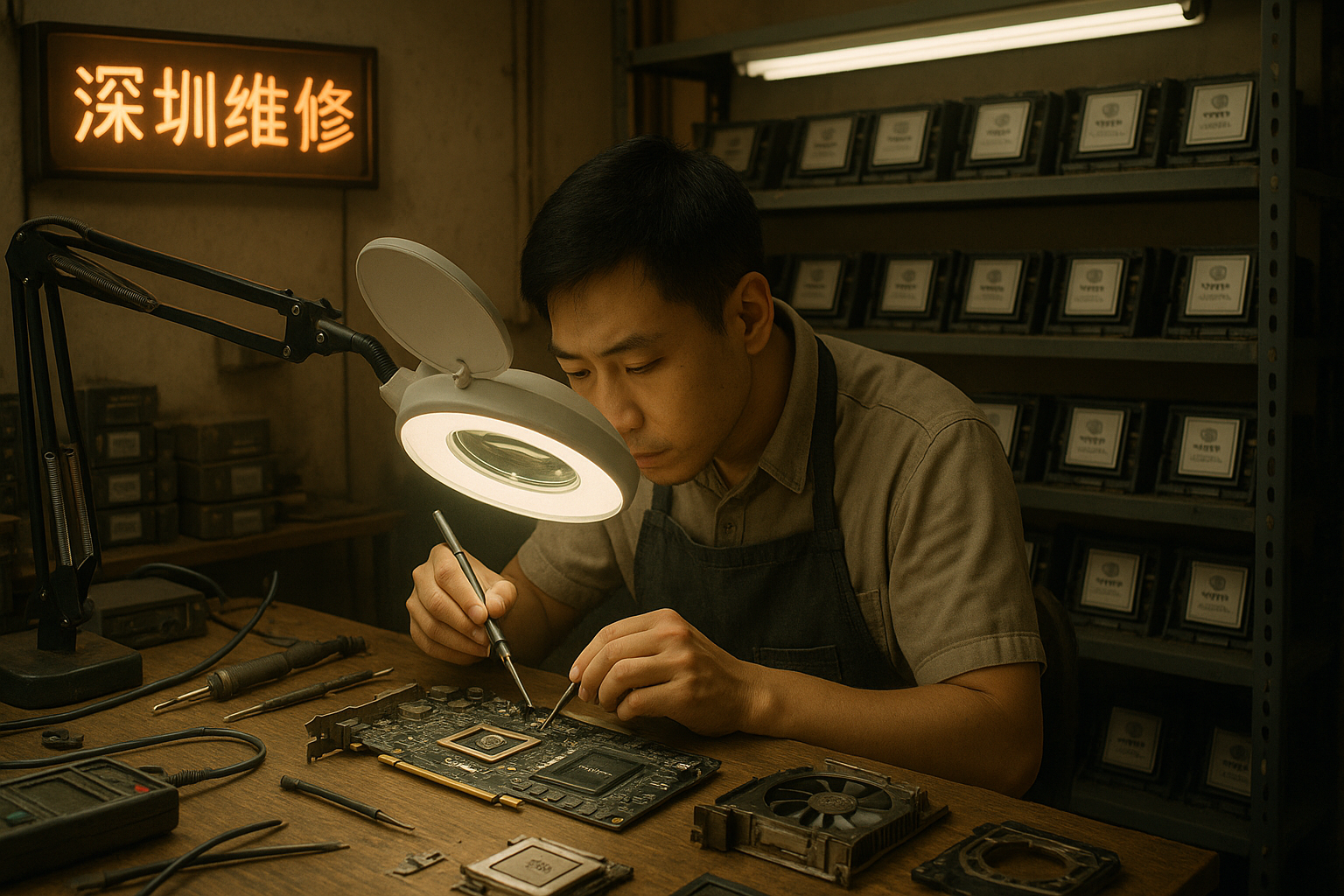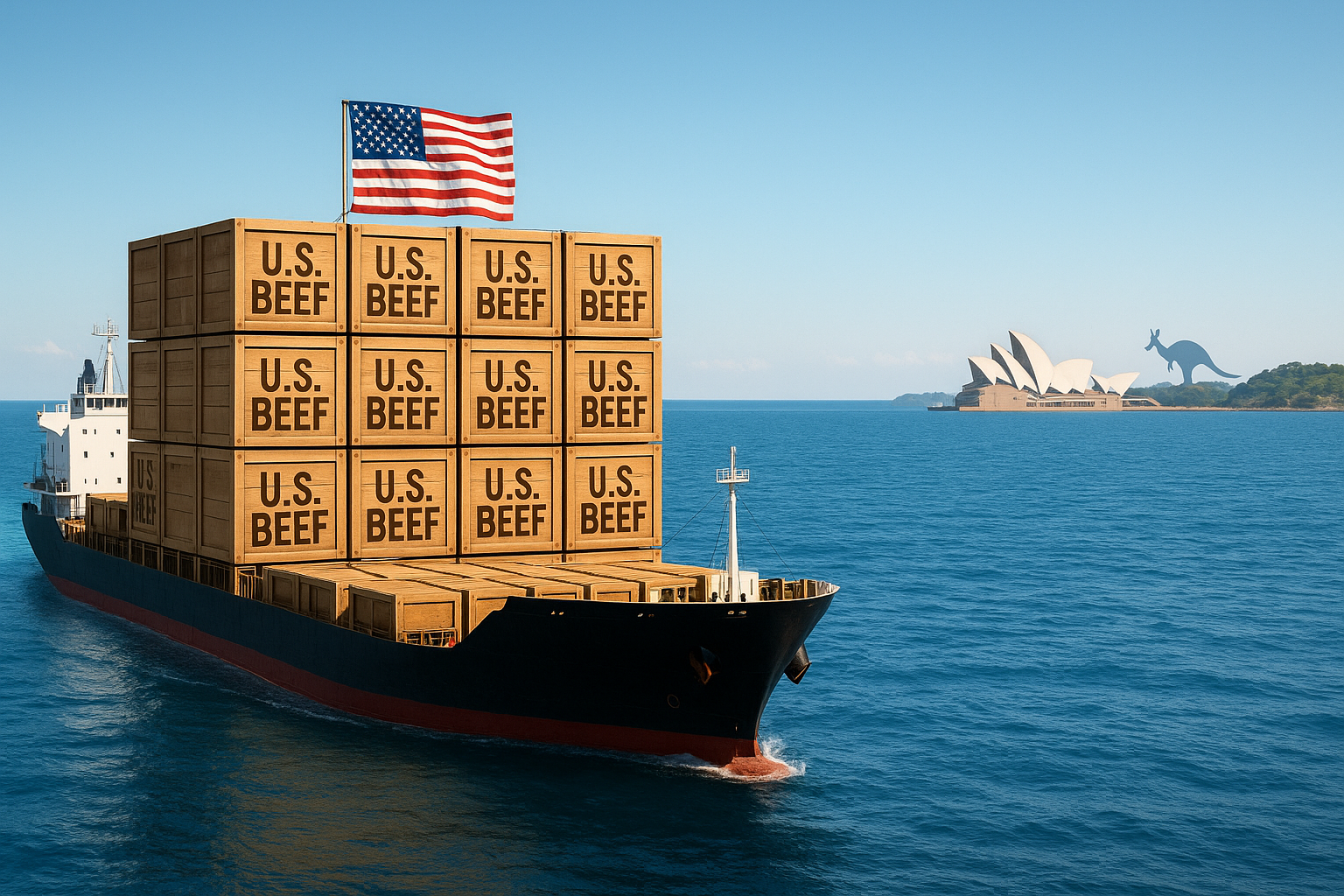The cleverest economic tales aren't about numbers—they're about human ingenuity. And boy, is there a doozy unfolding in Shenzhen right now.
While Washington officials draft memos and issue stern warnings about technology transfer to China, something fascinating is happening on the ground. Reuters recently revealed that repair shops in China's tech hub have pivoted to a lucrative new specialty: fixing banned Nvidia AI chips.
About a dozen shops—tucked away in Shenzhen's sprawling electronics districts—are now giving new life to broken H100 GPUs, the very same advanced processors American regulators have tried desperately to keep out of Chinese hands.
"Demand is really high," confessed one repair shop owner who spoke to Reuters. So high, in fact, that this enterprising individual spun off an entirely separate company just to handle the flood of damaged AI chips flowing through their doors. We're talking about 500 Nvidia AI chips monthly—not exactly small potatoes.
I've covered tech markets for years, and this has all the hallmarks of what economists call a "shadow economy." When regulations create artificial scarcity, markets don't disappear—they transform.
Think about it. These aren't cheap components we're discussing. New H100 chips command anywhere from $25,000 to $40,000 each. (That's a down payment on a house in most American cities!) When something that valuable breaks and can't be legally replaced... well, necessity becomes one hell of an innovator.
The really interesting bit? The existence of this repair ecosystem tells us something crucial—there must be a substantial number of these restricted chips already inside China. You can't fix what isn't there.
Reuters noted that Nvidia shipped approximately $1 billion worth of AI chips to China in just three months following Trump's tightened export controls. That's a mountain of silicon now potentially feeding this gray market repair economy.
This situation reminds me of Cuba's famous classic car mechanics. When the U.S. embargo cut off new American vehicles, Cubans didn't simply stop driving—they became the world's most resourceful automotive engineers, keeping 1950s Chevys purring for decades beyond their intended lifespan.
The parallels are striking. (And a bit ironic, frankly.)
For Nvidia, this creates an awkward corporate conundrum. On paper, they must dutifully comply with American export restrictions. But somewhere in a corporate boardroom, there must be grudging admiration for how their products have proven so valuable that an entire underground economy exists just to keep them functioning.
Look, technology control has always been a game of whack-a-mole. Ban the export of new chips, and repair shops blossom. Try shutting down the repair shops... and something else will emerge. The more valuable the restricted technology, the stronger the market incentive to find creative workarounds.
What's particularly notable here—and something policymakers should be losing sleep over—is that the knowledge transfer happening in those workshops might ultimately prove more valuable than the physical chips themselves. Every repair represents a learning opportunity, a chance to reverse-engineer and understand these advanced components.
Having watched technology restriction efforts play out across different industries, I can tell you they almost always leak like sieves. Remember the Cold War restrictions on supercomputers? The Soviet Union still managed to build them. The Iran sanctions? They still developed nuclear capabilities.
The question nobody seems to be asking: do these repaired chips perform as well as factory-fresh ones? If yes, China has effectively created a sustainable AI chip ecosystem despite the bans. If not... well, they're buying valuable time while developing domestic alternatives.
Either way, this tale of Shenzhen repair shops reveals the inevitable truth about markets and human creativity. When there's enough economic incentive—and $25,000 chips certainly qualify—people will find a path around just about any regulatory barrier.
They always do.



